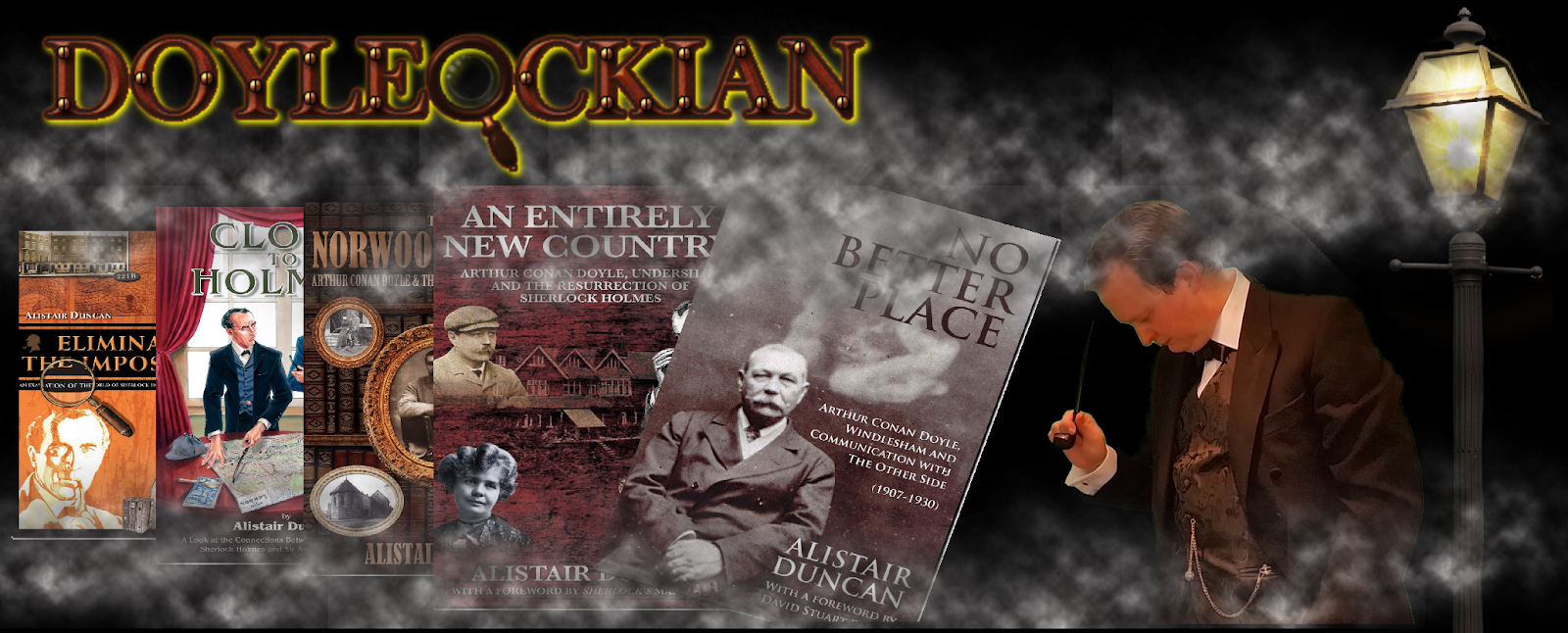Unsympathetic “victims”
As devotees will know,
Sherlock Holmes was more than ready to be his own judge and jury when it
suited him. When he chooses to act in this capacity we are encouraged to accept
that he is right and that he is helping good people by doing so.
But is he really?
Let’s take two examples. The first is Dr Leon Sterndale. He
is the murderer of the murderer in The
Devil’s Foot. Because he does it to avenge his killed love he is
essentially let off by Holmes in one of his rare moments of understanding with
respect to the more tender feelings. However, Sterndale had ample opportunity
to tell Holmes of his suspicions and earlier events before setting out on his
revenge. Holmes could then have acted on those suspicions and helped to bring
about the arrest and conviction of the
guilty party.
 |
| Sterndale (right) attempts to intimidate Holmes |
Instead Sterndale ignores this opportunity and pursues his
own course. Yes we feel sympathy for him and for Holmes’s actions but he
essentially took his own line because of his lack of faith in the justice
system. If we all acted like that society would be in serious trouble.
Next, and far worse in my opinion, are Lady Brackenstall and her would-be lover Captain
Crocker from The Abbey Grange. It is
true that Lady Brackenstall is a victim of domestic violence and that Crocker
saves her by killing her husband Sir Eustace when he himself is attacked by him. It
is also true that, at the conclusion of events, Crocker, when given the opportunity
to save himself refuses to do so if it will expose Lady Brackenstall to the
law. So far, so noble and admirable.
But we should not lose sight
of the fact that, to save themselves, these two were perfectly prepared to frame
a gang (indeed family) of burglars – the Randalls. This gang were indeed
criminals who stole and may have assaulted people but they had never killed and
thus had not put themselves in line for the noose.
 |
| Captain Crocker (right) arrives at Baker Street to face the music |
Lady Brackenstall and Crocker were clearly more than happy to put that noose around the necks of
the Randalls in order to save themselves and ensure their future life together.
Crocker’s noble persona evaporates in an instant. In short, he only ended up being noble
because Holmes became involved in the case. If he had not, the Randalls could
well have swung and would Crocker have been so ready to stand up and be counted?
 Written by Alistair Duncan
Written by Alistair Duncan


Good points, I found it interesting in Hound when Holmes admonished Sir Henry and Watson for taking such liberties with the law as it concerned Seldon.
ReplyDeleteOf course, one of my favorites, BLUE is another such case.
Quite so.
Delete